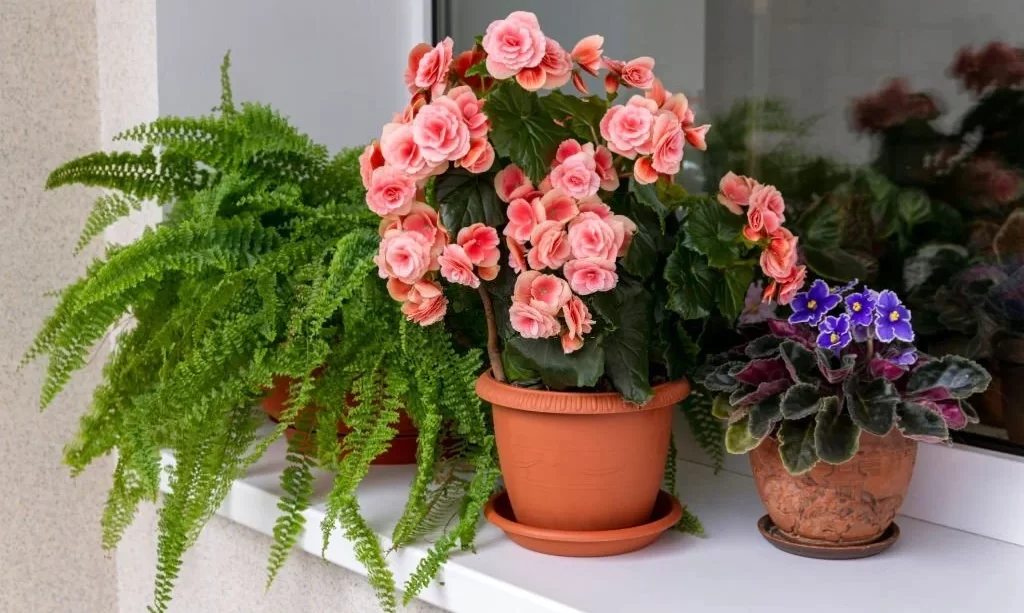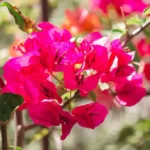In the realm of horticulture and gardening, few plants are as cherished and versatile as begonias. These botanical marvels have captured the hearts of enthusiasts worldwide with their lush foliage and delicate blooms. Yet, when it comes to understanding the life cycle of begonias, a common question often arises: Are begonias annual or perennial plants? The answer, as it turns out, is both complex and fascinating.
- Member of Colorful Foliage, Shade Plants
- Requires partial shade – shade
- Dimensions: 28.00in high, 5.00in high on delivery, spreads 10.00in
- USDA Hardiness Zone(s): 10
- Blooms from April to October
The Diversity of Begonias
Before delving into the annual or perennial nature of begonias, it’s essential to appreciate the vast diversity within this plant genus. Begonias encompass a remarkable array of species, hybrids, and cultivars, each with its unique characteristics and aesthetic appeal.
From the diminutive bedding begonias, known for their vibrant, waxy leaves and compact growth, to the majestic tuberous begonias, boasting large, showy blossoms in a myriad of hues, begonias come in all sizes, shapes, and colors. This remarkable diversity makes them a beloved choice for gardeners, both novice and experienced, as well as popular houseplants for indoor greenery.
Begonias have earned their place in gardens, hanging baskets, and indoor pots, thanks to their adaptability and ornamental value. Understanding the annual or perennial nature of begonias is essential for gardeners seeking to incorporate these beauties into their landscapes and interior spaces effectively. To unravel the enigma of begonias’ life cycles, we must first explore the various types of begonias and their distinct growth patterns.
Annual vs. Perennial
To navigate the world of begonias effectively, it’s crucial to grasp the fundamental botanical concepts of “annual” and “perennial”. These terms provide insights into a plant’s life cycle and growth patterns.
In botanical terms:
- Annuals: These are plants that complete their entire life cycle, from germination to seed production, within a single growing season. Annuals typically bloom profusely during their short lives and are known for their ability to provide a burst of color in gardens. After they flower and produce seeds, they die off naturally.
- Perennials: Perennials are plants that persist for multiple growing seasons. They have the ability to return year after year, often entering periods of dormancy during unfavorable conditions (like winter) and then regrowing when conditions improve. Perennials can have varying lifespans, from a few years to several decades.
Understanding these definitions provides the foundation for discerning whether begonias are annual or perennial plants, a question that leads us to explore the diverse world of begonias in more detail.
- The Trending Tropicals Collection: Elevate your home decor with exceptional new varieties representing some of the hottest houseplant varieties on social media.
- Height at shipping is approximately 14-Inches tall, measured from the bottom of the pot to the top of the plant. Ships in a premium, 6-inch décor mixed material planter
- Place in a spot that receives bright light, 5 or more hours of indirect sunlight. Direct sunlight may burn the plant.
- Water when the top 2 inches of the soil are dry (about once every 7 to 10 days) and be sure all excess water drains away. Do not let the plant sit in water or overly soggy soil.
- This plant is great for small spaces and tabletops. It does well in most rooms and outside on a patio.
Annual Begonias
When it comes to begonias, the term “annual” most commonly applies to specific types, notably the common wax begonias (Begonia semperflorens). These begonias are cherished for their compact growth habit, waxy leaves, and clusters of delicate flowers. However, they are sensitive to colder temperatures and frost.
Annual begonias typically complete their life cycle within a single growing season, producing a profusion of blooms before the onset of unfavorable weather. In regions where frost is a concern, gardeners often treat these begonias as annuals, replanting them each spring to enjoy their colorful displays.
- 1,000 Bulk Seeds BEGONIA WAX WHITE Begonia Semperflorens jocdw (Seeds)
- Season: Annual/Perennial | Height: 6-8 Inches | Bloom Season: Spring/Summer/Fall | Environment: Sun/Partial Shade | Soil Type: Average, Moist well-drained, pH 5.5-6.2 | USDA Zones: 8-11 (As Perennial) All regions of North America (As Annual)
- Sow Inside: Winter (8-12 weeks before last frost) | Seed Depth: Surface sowing – press seeds slightly into the soil | Days to Emerge: 17-28
Perennial Begonias
Perennial begonias represent a different facet of this versatile plant genus. Notably, tuberous begonias (Begonia x tuberhybrida) and certain rhizomatous begonias fall into the category of perennial begonias. These varieties have the ability to persist over multiple growing seasons, making them suitable for regions with milder climates or when provided with appropriate care.
Tuberous begonias, in particular, are celebrated for their large, showy flowers and ability to return each year when protected from harsh winters. Some rhizomatous begonias also exhibit perennial characteristics, thriving and flowering year after year.
In the case of perennial begonias, gardeners may choose to overwinter these plants indoors or provide protective measures during colder months to ensure their continued growth and bloom. The practice of overwintering allows perennial begonias to grace gardens with their beauty and charm for several seasons.
By distinguishing between annual and perennial begonias, gardeners can make informed choices when selecting and caring for these remarkable plants, ensuring their gardens and living spaces remain adorned with the splendor of begonias throughout the seasons.
- Begonia Flower Seeds – Tuberous – Nonstop Series – Mocha Mix – Pelleted – 100 Seeds – Begonia x tuberhybrida
- Non-GMO – Hybrid – High Germination Rate
- Seeds For: Flower Gardening
- Days to Full Maturity: 133-154 — Annual — USDA Hardiness Zone: Annual Crop, Not Intended To Overwinter
- Mountain Valley Seed Company Brand – Premium Quality Seeds
Overwintering Begonias
For gardeners residing in regions with cold winters or those who wish to extend the life of their perennial begonias, the practice of overwintering becomes invaluable. Overwintering involves protecting begonias from the harsh conditions of winter, allowing them to survive and thrive for multiple growing seasons.
The process of overwintering often includes the following steps:
- Lifting Tuberous Begonias: In the case of tuberous begonias, the tubers are carefully dug up before the first frost. They are then stored in a cool, dry place for the winter months. When spring arrives, the tubers are replanted to resume their growth and blooming.
- Bringing Potted Begonias Indoors: Begonias grown in pots can be brought indoors before the onset of winter. This protects them from freezing temperatures and allows them to continue their growth in a controlled indoor environment. Adequate lighting and proper care are essential to ensure their well-being.
Overwintering techniques can vary depending on the specific type of begonia and the climate in which they are grown. Successfully overwintering begonias requires a bit of planning and attention, but it rewards gardeners with the opportunity to enjoy these beautiful plants year after year.
Annual vs. Perennial Begonias: Key Considerations
As we draw comparisons between annual and perennial begonias, there are several key considerations for gardeners to keep in mind:
- Climate: Climate plays a significant role in determining whether begonias are treated as annual or perennial plants. Regions with mild winters often allow for perennial begonias, while colder climates may necessitate the annual replanting of certain varieties.
- Variety: Begonias encompass a wide range of species and cultivars, each with its own growth habits and hardiness. Understanding the specific type of begonia you are growing is crucial in deciding whether it is best treated as an annual or perennial.
- Gardening Goals: Gardeners should align their choices with their gardening goals. If you seek consistent, long-term blooms and are willing to invest in overwintering practices, perennial begonias may be a great choice. For seasonal color bursts and simplicity, annual begonias can be a delightful option.
Conclusion
In the captivating world of begonias, the distinction between annual and perennial varieties adds a layer of intrigue and diversity. Begonias, with their exquisite blossoms and lush foliage, can enhance gardens, patios, and indoor spaces with their charm and versatility.
Whether you opt for annual begonias to infuse your garden with vibrant seasonal colors or perennial begonias to enjoy their enduring beauty, begonias remain a beloved choice among gardeners. By understanding their life cycles, climates, and care requirements, you can harness the full potential of begonias to create botanical wonders that delight the eye and heart throughout the seasons.








